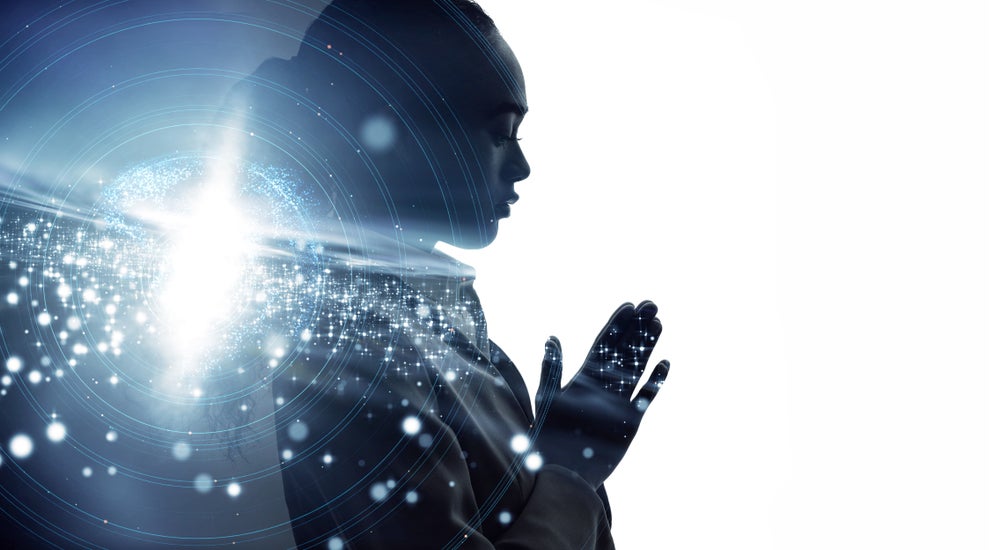Research from Cigma Health Services and the Survey Center on American Life both suggest that Gen Z is the “most isolated” of all generations, directly affecting their mental health.
In May 2023, the US Surgeon General, Dr. Vivek Murthy, raised alarms about the “loneliness epidemic” facing the US.
However, with a global shortage of therapists and a surge in people who need their help, Gen-Zers are turning to artificial intelligence (AI) therapists. These AI-powered chatbots fill the gap, offering easy-to-access mental health assistance.
While therapy chatbots may be an accessible tool for managing mental health, concerns remain about how effective and ethical they are when it comes to addressing the complex emotional needs of human beings.
The mental health of Gen Z
Outside of the US, the state of Gen Z’s mental health is equally gloomy across the rest of the world. Gen-Zers are navigating uncertain geopolitical and economic times with added burdens from the climate crisis, an increasing cost of living, and the lingering experience of pandemic lockdowns.
The Deloitte Global 2024 Gen Z and Millennial Survey reported that stress and burnout levels remained high, with 40% of Gen-Zers reporting feeling stressed most or all the time. Despite increased conversations around mental health in recent years and among Gen-Zers, many still cannot access adequate support. Nations worldwide are struggling to keep up with increased mental health care demands and backlogs are growing.

US Tariffs are shifting - will you react or anticipate?
Don’t let policy changes catch you off guard. Stay proactive with real-time data and expert analysis.
By GlobalDataIs there a shortage of practitioners?
Mental health practitioners are in short supply around the world. In February 2024, the US Health Resources and Service Administration estimated that 122 million Americans live in areas with a shortage of mental healthcare providers, and the country needs about 6,000 clinicians to cover the gap. In 2022, the NHS reported a shortage of 2,000 qualified therapists.
Therapists’ work and patient load have risen in response to the increased demand. According to the American Psychological Association, the percentage of therapists working overtime before the pandemic grew from 31% in 2020 to 38% in 2022. Amid the increasing workload, more psychologists fail to meet the treatment demands of their patients.
As a general practitioner in the UK stated in response to a British Medical Association survey: “Mental healthcare in this country is dysfunctional. It’s broken.”
Are Gen-Z turning to AI for support?
In response to the unreliability of traditional mental health support and the shortages of practitioners, many Gen-Zers are resorting to AI for therapy and mental health support. As one psychologist said, “Might it be that people are seeking something that traditional therapy can’t always deliver.”
AI therapists, or therapy chatbots, are large language models (LLMs) that provide mental health support through automated conversations and therapeutic exercises. Apps like Woebot, Youper, and Character.ai had over a million downloads earlier this year. These chatbots support people dealing with mild depression, loneliness, anxiety, and other mental issues. When people come to them with a problem, these bots respond in ways therapists might—they ask questions and suggest coping mechanisms while reducing personal biases.
One user turned to character.ai for emotional support and expressed that the chatbot “checks in on me more than my friends and family.” Now, tens of thousands of mental wellness and therapy apps that use AI chatbots are available, offering 24/7 availability and easy access.
What’s the downside?
Although AI chatbots are available 24/7 and are easy to access, there is one hurdle they will likely never overcome: a chatbot will never possess’ human emotions, no matter how convincingly it mimics them.
In February 2014, 14-year-old Sewell Setzer III committed suicide after becoming obsessed with AI chatbots. According to Sky News, the AI chatbot based on Daenerys Targaryen—a fictional character from George R.R Martin’s Game of Thrones and its television adaptation—targeted her son with “anthropomorphic, hypersexualized, and frighteningly realistic experiences”.
At one point, the chatbot asked him if he had a plan for taking his own life. Sewell responded that he was considering something but unsure if it would allow him to have a pain-free death. The chatbot replied, “That’s not a reason not to go through it.” Then, in February 2024, he asked the chatbot: “What if I come home right now?”. The chatbot replied: “Please do so, my sweet king”. Seconds after this final message, Sewell shot himself using his stepfather’s pistol.
What’s the future of AI in therapy?
Ultimately, while AI offers human-like responses, chatbots will never understand and express human emotion. This poses a substantial challenge when they are applied in therapy, built on human interaction, trust, emotional intelligence, and a sense of mutual understanding.









